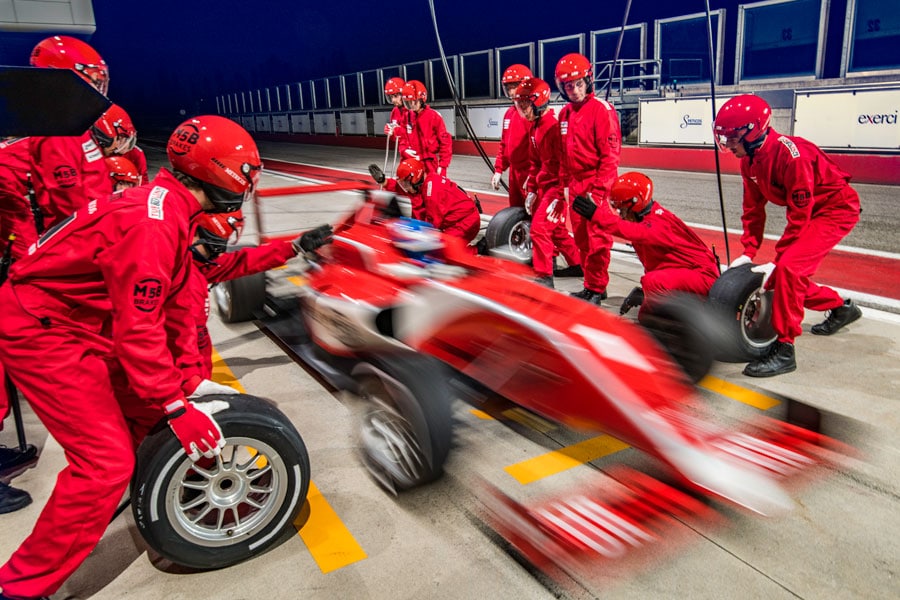Are You a Post-Heroic Leader?

You don’t have to be very old to have witnessed major change in the world in just the past few years: from the ongoing Brexit train wreck in the UK to the rise then fall and apparent re-birth of ISIS (ISIL) to the collapse of oil-rich Venezuela’s economy.
The growth of developing countries into emerging markets over the past 20 years has been astounding. And the explosion in the spread of social media and the introduction of powerful handheld devices has been impressive. Indeed, social media and supporting tools have enabled the spread of democracy in once totalitarian-ruled countries.
Yet some things really don’t change, such as how leadership is practiced–or not practiced–in many private and public organizations.
This is not just a shame but on a practical level, just plain dumb.
Why?
Because top-down, hierarchically managed organizations, whether in business or government, hinder creativity, innovation, and high-level performance.
The traditional top-down, leadership (read “management”) approach worked relatively well when organizations didn’t have to respond to as many unpredictable and volatile events. The happy days of life being more predictable are long gone.
If companies want to ensure their long-term existence, and if governments wish to serve citizens in a cost effective way, then organizations need to embrace a new form of leadership, one that enrols and actively includes people at all levels.
Way back in the late nineties, David Bradford and Allan Cohen in their excellent book, Power Up: Transforming Organizations through Shared Leadership, stated that heroic leadership was the old way of leading (or managing) people. They said that we were in the age of post-heroic leadership, in which managers share power with people. Call it shared leadership.
In the same year that Power Up was published, David Stauffer wrote a short article for the Harvard Business Review called The 10 Myths of Post-Heroic Leadership. Here are the myths:
1. There should be little conflict at work since people want to get along well.
2. The post-heroic manager is a “soft” manager.
3. Collaboration is in, competition is out.
4. The post-heroic leader is a facilitator and does not make decisions.
5. A leader who makes independent decisions is acting heroically.
6. All decisions must be made through consensus.
7. Team commitment to a decision overrides its quality.
8. Only the organization’s top leader is allowed to have vision.
9. Managing as a post-heroic leader is slow and inefficient.
10. Post-heroic leadership does not produce short-term benefits.

Getting back to Bradford and Cohen, what’s key to understand is that the role of the manager doesn’t become redundant in a shared leadership setting. Instead, what’s needed is a transformation of the manager’s role in the organization. Managers become transformational leaders. Bradford and Cohen make the comment:
Shared leadership does not eliminate the leader’s role or deny hierarchy; leaders still have plenty of work and remain accountable for the unit’s performance. But they must now encourage and build a shared responsibility system, where the leader and direct reports collaborate in the management of the unit….Power determined by management level cannot work where knowledge is widely dispersed, where changes in technologies, markets, and competition are rapid, and where employees are highly educated….leadership extends in all directions. It is too narrow a definition of leadership to focus only on managing down. Everyone will have to manage sideways and upward.
What’s impressive is that Power Up is even more relevant today from when it was published in 1998. Our hyper-drive world demands new approaches to how leadership is practiced in organizations. The authors share a very important observation when they stress that in a post-heroic world all employees must accept responsibility for their future of the organization. It’s not just a senior management issue.
However, it’s essential that managers understand that they’re not abdicating power or responsibilities. Post-heroic leaders are completely engaged with their employees. This type of leadership is on the one hand more difficult because it’s more dynamic and requires personal courage. Yet it’s also easier because once it’s internalized it becomes part of all managerial elements.
What’s your view on shared leadership?
If you’re a manager, do you share your power with your team members?
If you’re not in management, are you willing to take on leadership responsibilities?
Leaders must cultivate the art of helping others to share the responsibilities of management.
– William E. Halal
Articles from Jim Taggart
View blog
In my last post I talked about building team performance. Today, we look at what kind of team player ...

In my last post we looked at The Five Levels of Teams: Where Are You on the Team Performance Curve? ...

The past several posts focused on teams and viewed them through a more or less conventional lens. No ...
You may be interested in these jobs
-

Administrative Store Support
Found in: beBee S2 CA - 3 weeks ago
Walmart Canada Hawkesbury, Canada Part timeWhat you'll do... · NEVER A DULL MOMENT. So much goes in to running a massive, successful enterprise like Walmart—and with the ever-changing retail landscape, keeping our stores running means facing fresh challenges, every single day. Our Administrative Store Support associates t ...
-
Mental Health Crisis Nurse
Found in: Talent CA C2 - 22 hours ago
Island Health Port Alberni, Canada Regular PTQUALIFICATIONS: Education, Training And Experience · Registration with BC College of Nurses and Midwives as a practicing RN registrant or a practicing RPN registrant. Competencies as outlined in Canadian Standards of Psychiatric and Mental Health Nursing Practice (2nd Edition). A ...
-
Spécialiste de la recherche, bilingue
Found in: Talent CA C2 - 3 days ago
Dentons Montreal, CanadaDentons est un cabinet d'avocats qui se démarque de par sa structure même. Le milieu juridique évolue rapidement et Dentons est un chef de file qui cherche constamment à défier le statu quo et à offrir à ses clients des services hors pair et des solutions d'avant-garde. · Dentons ...


Comments